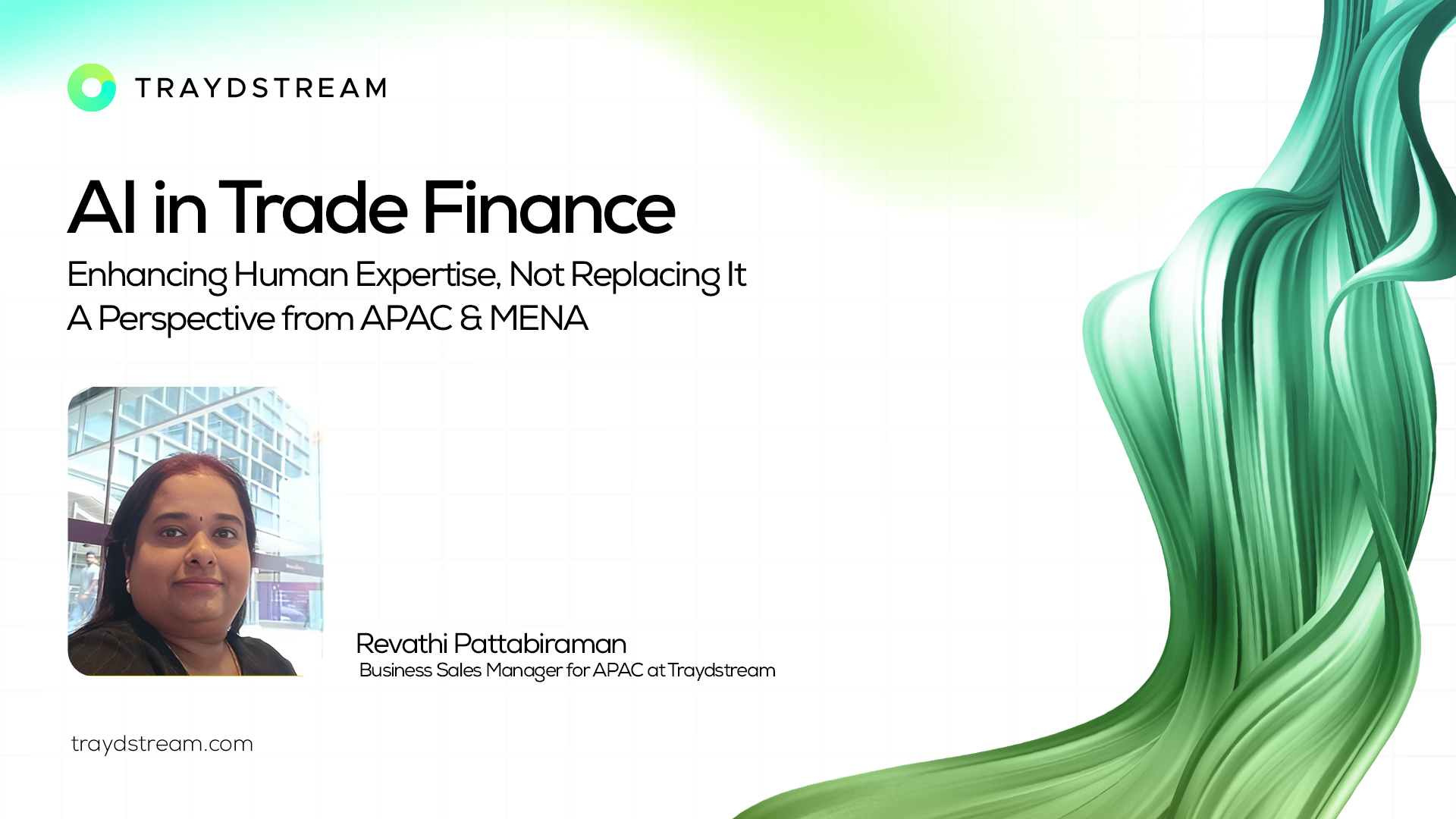
The integration of artificial intelligence (AI) in trade finance is redefining operational efficiencies, risk management, and compliance across global markets. In the Asia-Pacific (APAC) and Middle East & North Africa (MENA) regions, AI is increasingly seen as an enabler—augmenting human expertise rather than displacing jobs. With growing transaction volumes, evolving regulatory requirements, and the continued digitization of trade, AI is playing a pivotal role in streamlining processes while allowing professionals to focus on strategic decision-making.
The Role of AI in Trade Finance
Trade finance remains one of the most complex areas within financial services, often characterized by manual documentation, lengthy processing times, and regulatory challenges. AI is transforming this space by:
- Automating document verification, reducing processing times and minimizing errors.
- Enhancing fraud detection capabilities through advanced pattern recognition.
- Optimizing risk assessment using predictive analytics and real-time data insights.
- Strengthening regulatory compliance by automating due diligence and monitoring.
This technological evolution is not about replacing human roles but about supporting financial professionals by increasing efficiency, reducing administrative burden, and improving accuracy in trade transactions.
Growth and Adoption in APAC & MENA
The adoption of AI in trade finance is accelerating, with significant investment and policy initiatives supporting its integration. Industry data reflects this growing trend:
- The AI in trade finance market is projected to grow from $9.67 billion in 2023 to $22.72 billion by 2028, reflecting a compound annual growth rate (CAGR) of 18.7% (blog.tbrc.info).
- In APAC, 29% of corporations have integrated AI into their financial operations, particularly for compliance, fraud detection, and process automation (thecorporatetreasurer.com).
- In MENA, AI is expected to contribute approximately $320 billion to the regional economy by 2030, with financial institutions and trade finance platforms leveraging AI to improve operational efficiencies and security (pwc.com).
Furthermore, financial regulators and industry bodies in these regions are increasingly supporting AI adoption through regulatory sandboxes, pilot programs, and digital transformation strategies.
AI as an Enabler, Not a Replacement
While AI is automating routine processes, human expertise remains irreplaceable in key areas such as complex risk assessments, strategic decision-making, and relationship management. The role of financial professionals is shifting from administrative functions to higher-value advisory roles, ensuring that AI augments rather than replaces their work.
According to Revathi Pattabiraman, Business Sales Manager for APAC at Traydstream:
“AI in trade finance is not designed to replace professionals but to empower them. This synergy between man and machine in trade finance will enable professionals to leverage AI’s automation capabilities while applying their expertise to strategic, analytical, and relationship-driven tasks. This harmonious collaboration ensures greater efficiency, accuracy, and adherence to regulatory standards.”
The Future of AI in Trade Finance
As AI continues to evolve, the partnership between technology and human expertise will become even more integral to trade finance operations. Key areas of focus include:
- Further integration of AI-driven compliance and fraud detection systems to enhance security.
- Increased adoption of AI-powered risk assessment models for real-time decision-making.
- Stronger collaboration between regulatory bodies and financial institutions to ensure ethical and responsible AI implementation.
The continued investment in AI, alongside human expertise, will drive greater efficiency, security, and innovation in trade finance—reinforcing AI’s role as a tool for enhancement, rather than replacement.



